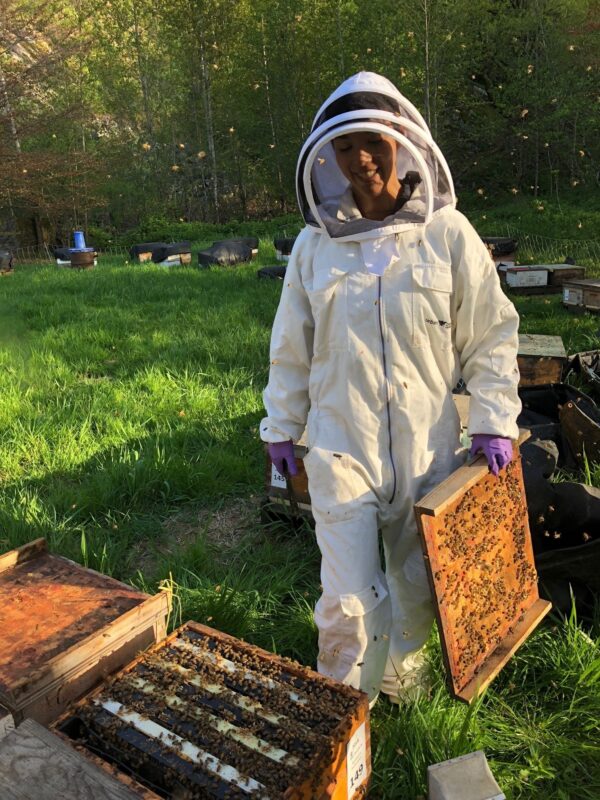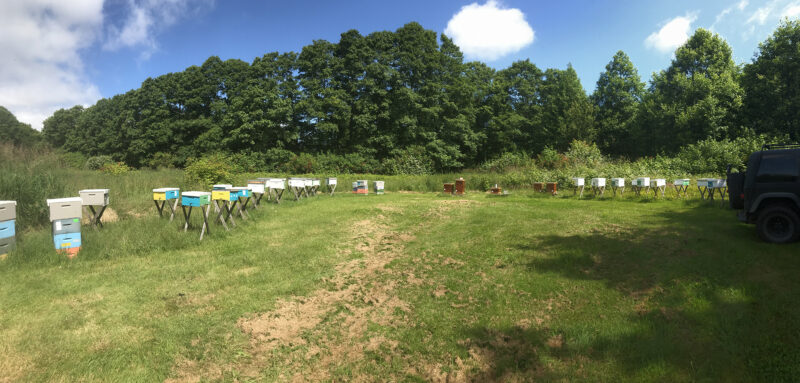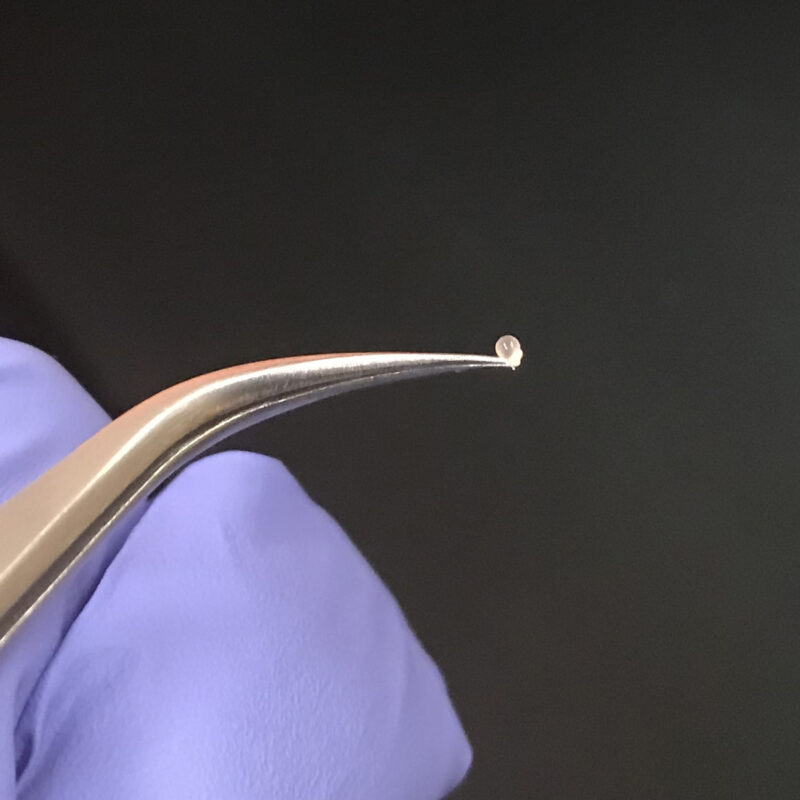Awards and recognition
Dr. Alison McAfee awarded L’Oréal-UNESCO 2021 Excellence in Research Fellowship

Dr. Alison McAfee
Congratulations to Dr. Alison McAfee of the Michael Smith Laboratories for receiving the highly competitive L’Oréal-UNESCO 2021 Excellence in Research Fellowship, from the For Women in Science program. This fellowship was created “…to support major postdoctoral research projects undertaken by young Canadians at a pivotal time in their career. They reward excellence and allow top scientists, selected by a panel of experts, to further their research”. As one of only two successful Canadians, this $20,000 salary award will support Dr. McAfee’s postdoctoral position in the Foster lab.

Dr. McAfee in the field-photo by Marta Guarna
An expert in honey bee fertility, McAfee uses proteomics and mass spectrometry to identify protein biomarkers that act as indicators of environmental stress and loss of fertility. These proteins are present in higher amounts when bees become stressed in different ways. The vision is that they could be matched like fingerprints to help diagnose if the bees have been exposed to stressful conditions.
One focus of McAfee’s research is temperature stress markers related to extreme heat and cold conditions bees face in their environment, especially in the wake of climate change. Drone die-offs during heat waves in North America this past summer are of particular concern. Studying these heat stress markers may help researchers identify ‘hot spots” around the globe that pose a threat to bee colony success and food security at large.
Honey bees are a crucial species, acting as key pollinators for agriculture worldwide. Crops pollinated by bees result in larger fruit and reliable fruit set, yielding more produce per acre. Honey bees are said to contribute 5 billion dollars annually to the Canadian economy through higher agricultural yield.
“Understanding what happens to bees in the environment is critical. Being a well-studied and managed species, they serve as an important monitoring tool, revealing what could be happening to other animals, particularly insects. Climate change is one of the driving forces between shifting insect population and abundances, directly affecting their ability to reproduce. Honey bees are a model used to understand what might be happening to wild insect populations.”
With support from this L’Oréal-UNESCO 2021 Excellence in Research Fellowship, Dr. McAfee will be able to embark on two branches of her research focused on understanding queen bee fertility and quality decline. Poor queen quality is cited as one of the biggest problems leading to colony death in North America. While the “four Ps” of colony loss are well studied (pesticides, poor nutrition, parasites and pathogens), poor queen quality is often overlooked. Queen bees are critical to the colony’s health as each colony has a single queen that produces all the members of the hive.
“Queens only mate during one period when they are very young. They gather all the sperm that they would ever need to fertilize hundreds of thousands of eggs for the rest of their life and store it in a special organ called a spermatheca. Exposure to extreme temperatures will cause the stored sperm to die. This impacts the development of the colony as the queen won’t be able to fertilize enough eggs to build a strong enough worker population.”
Dr. McAfee is testing inferior quality queens looking for stress biomarkers in the hopes of identifying key factors that contribute to queen quality decline. McAfee is also studying how queens are able to keep sperm alive for so long, a capability that only social insects possess.
“I’m aiming to recreate the environment of a spermatheca in a test tube. If successful, I can start manipulating it. By changing the environmental conditions, what proteins are present or the enzyme activities we can see how that affects the sperm viability and longevity. This will help us determine what conditions are most important for keeping sperm alive. With a system like this you can really explore more precise mechanisms than when dealing with whole organisms.”

Queen mating yard-photo by Dr. Alison McAfee
With more research and prototyping to do with these projects, Dr. McAfee is grateful for the impact this fellowship will have on furthering her research.
“I really love having my hands dirty and doing the actual research in the field and the lab. I also love doing work with proteins and DNA and figuring out the molecular mechanisms of systems. Working in biochemistry and using mass spectrometry and proteomics to answer questions, while focusing on a system like honey bees, seems like a perfect marriage of the two. And it really doesn’t take much to fall in love with bees as a system because they are so fascinating.”
We look forward to seeing what Dr. McAfee’s research will uncover in the coming months. Her work is an important part of understanding the intricacies of a species critical to food security, as well as better understanding the effects of the climate crisis we face.
Learn more about the L’Oréal-UNESCO For Women in Science program.
Read the L’Oréal Canada press release.
